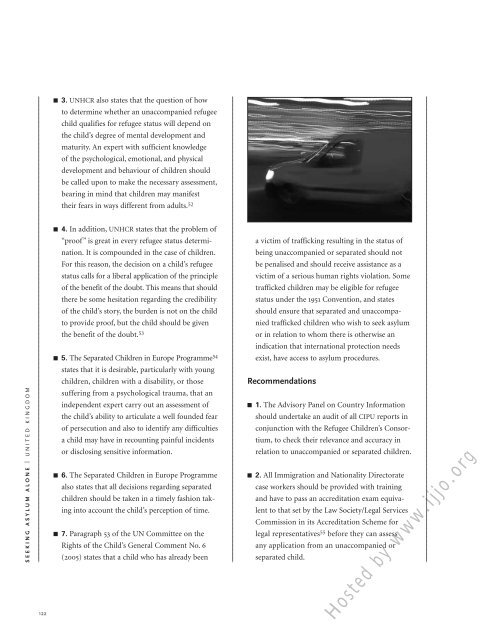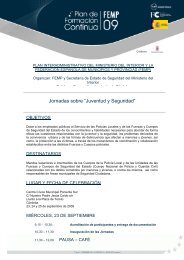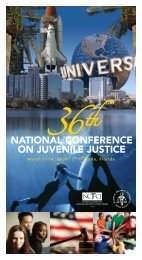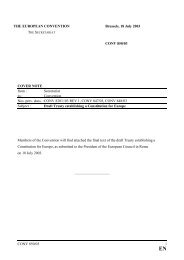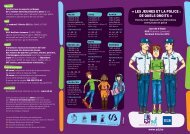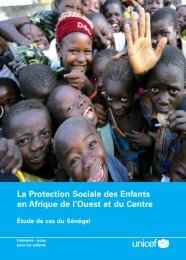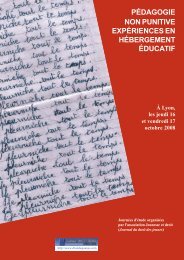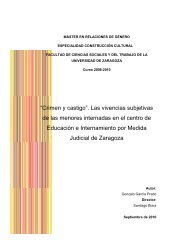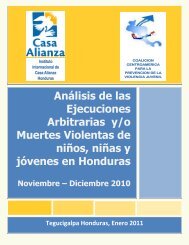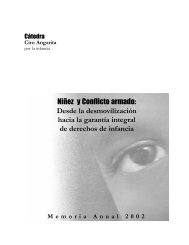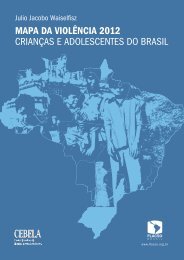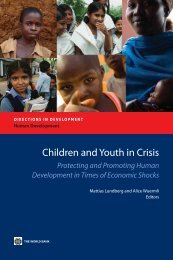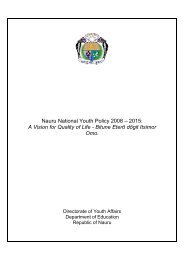Hosted by www.ijjo.org
Hosted by www.ijjo.org
Hosted by www.ijjo.org
You also want an ePaper? Increase the reach of your titles
YUMPU automatically turns print PDFs into web optimized ePapers that Google loves.
■ 3. UNHCR also states that the question of how<br />
to determine whether an unaccompanied refugee<br />
child qualifies for refugee status will depend on<br />
the child’s degree of mental development and<br />
maturity. An expert with sufficient knowledge<br />
of the psychological, emotional, and physical<br />
development and behaviour of children should<br />
be called upon to make the necessary assessment,<br />
bearing in mind that children may manifest<br />
their fears in ways different from adults. 52<br />
■ 4. In addition, UNHCR states that the problem of<br />
“proof” is great in every refugee status determi-<br />
a victim of trafficking resulting in the status of<br />
nation. It is compounded in the case of children.<br />
being unaccompanied or separated should not<br />
For this reason, the decision on a child’s refugee<br />
be penalised and should receive assistance as a<br />
status calls for a liberal application of the principle<br />
victim of a serious human rights violation. Some<br />
of the benefit of the doubt. This means that should<br />
trafficked children may be eligible for refugee<br />
there be some hesitation regarding the credibility<br />
status under the 1951 Convention, and states<br />
of the child’s story, the burden is not on the child<br />
should ensure that separated and unaccompa-<br />
to provide proof, but the child should be given<br />
nied trafficked children who wish to seek asylum<br />
the benefit of the doubt. 53<br />
or in relation to whom there is otherwise an<br />
indication that international protection needs<br />
■ 5. The Separated Children in Europe Programme 54<br />
exist, have access to asylum procedures.<br />
states that it is desirable, particularly with young<br />
children, children with a disability, or those<br />
Recommendations<br />
SEEKING ASYLUM ALONE | UNITED KINGDOM<br />
122<br />
suffering from a psychological trauma, that an<br />
independent expert carry out an assessment of<br />
the child’s ability to articulate a well founded fear<br />
of persecution and also to identify any difficulties<br />
a child may have in recounting painful incidents<br />
or disclosing sensitive information.<br />
■ 6. The Separated Children in Europe Programme<br />
also states that all decisions regarding separated<br />
children should be taken in a timely fashion taking<br />
into account the child’s perception of time.<br />
■ 7. Paragraph 53 of the UN Committee on the<br />
Rights of the Child’s General Comment No. 6<br />
(2005) states that a child who has already been<br />
■ 1. The Advisory Panel on Country Information<br />
should undertake an audit of all CIPU reports in<br />
conjunction with the Refugee Children’s Consortium,<br />
to check their relevance and accuracy in<br />
relation to unaccompanied or separated children.<br />
■ 2. All Immigration and Nationality Directorate<br />
case workers should be provided with training<br />
and have to pass an accreditation exam equivalent<br />
to that set <strong>by</strong> the Law Society/Legal Services<br />
Commission in its Accreditation Scheme for<br />
legal representatives 55 before they can assess<br />
any application from an unaccompanied or<br />
separated child.<br />
<strong>Hosted</strong> <strong>by</strong> <strong>www</strong>.<strong>ijjo</strong>.<strong>org</strong>


